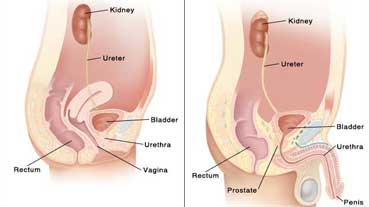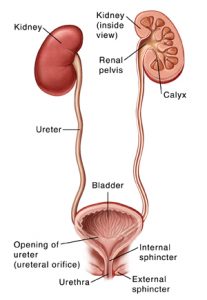Kidney Disease and Urinary Tract Problems

A renal cross section is an image of the interior of the renal tubules
Blood enters your renal glands through the renal arteries. Blood then drains your renal glands through the renal tubules. Each renal lobe contains a small filtering tubule (glomerulus), which has a series of miniature blood vessels known as capillaries. These capillaries transport blood-borne substances, including phosphorus, sodium and potassium, which then pass down to the nephrons, or filtering cells of the kidney. The neurons receive nutrients from the blood, as well as wastes, which need to be filtered out.
Kidney cancer and renal tumors can occur due to a number of factors, including obesity, excessive alcohol intake, consumption of diuretics (water pills), and chronic infections. This article will provide some general information about renal function. You may be able to gain some insight into the process by viewing your physician's professional pictures, which may be available in the office or on the internet.
There are three kidneys: one located in each corner of the abdomen, the second on the right side of the kidney, and the third on the left. The kidneys filter the blood-borne substances from the blood; they use the urine to remove any material that is not absorbed into the body. The functions of these organs are discussed below:
Kidney tumors and renal calculi occur when there is excessive pressure on the walls of the renal gland. They are caused by the enlargement of the kidney. Kidneys that are not functioning well may result in fluid retention and swelling. This is a common condition that leads to kidney stones, which can eventually lead to kidney failure.
Renal tumors, including renal calculi, can also result from chronic infections, high blood pressure and hypertension. The infection causes inflammation that allows the tumor to grow. High blood pressure increases the risk for developing kidney tumors and can cause high blood pressure. Hypertension causes the body to produce more pressure, causing hypertension.
Kidney stones are made up of calcium and oxalates. Kidney stones form in the kidney, because the mineral is too hard. For this reason, patients must follow a diet that consists of plenty of calcium and oxalates. if they want to keep their kidneys healthy.

Kidney disease occurs when the immune system becomes overactive
When this occurs, the body attacks itself with antibodies that attack and destroy healthy tissues and function.
There are several kinds of kidney disease. Kidney disease is the third leading cause of death in the United States. If it is not treated early, it can lead to death. It is also a major cause of disability and hospitalization.
When renal failure occurs, the kidneys may not be able to perform at a normal level. When this occurs, it causes fluid to accumulate in the body. Over time, this can lead to dehydration and other problems. As the kidneys become less efficient, they can't remove as much fluid as they once did.
The kidneys need to have adequate amounts of nutrients to function properly. Without them, the body cannot cleanse its own fluids and wastes, and thus, is deprived of essential vitamins, minerals and energy.
Kidneys that are not working properly and do not function properly are also calling ailing kidneys. They cannot cleanse the waste material and waste products that have built up inside the body.
Kidney disease can result in renal failure. In the worst case scenario, the kidneys fail to filter the fluid and electrolyte waste that have built up inside the body. If the kidney disease is advanced, it can lead to more serious medical problems. It may result in the kidneys not being able to excrete wastes and toxins from the body. In the worst case scenario, the kidneys fail to remove the wastes and toxins from the body.
The main risk of kidney disease is that it can lead to death if the proper medical treatments are not taken. if it is left untreated.